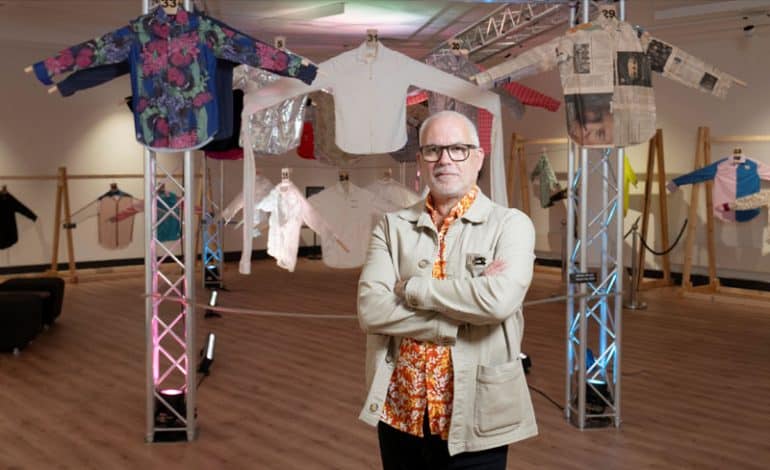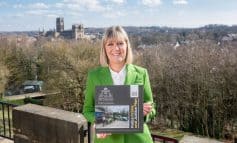Dozens of handmade shirts have gone on display at a County Durham arts venue as part of an exhibition exploring masculinity.
‘The Quest for the Perfect Shirt’, from North East-based textile artist Richard Bliss, is on show in Bishop Auckland Town Hall’s gallery until 4pm on Thursday, November 30.
The gallery, run by Durham County Council, is filled with 43 shirts made by Richard as a response to conversations he has had about masculinity.
Richard has made most of the shirts in public, but this is the first time he has exhibited them as a collection.
And he’ll be visiting the gallery every Wednesday afternoon to chat with visitors while making more shirts based on the conversations he has.
“The Quest for the Perfect Shirt is a project exploring masculinity, one shirt at a time,” he said.
“I have been talking to people all around the country about shirts. What shirts they like, how shirts should be worn, what their shirts say about the people they are.
“I’ve found that people soon stop talking about their shirts, and start talking about themselves; their dads, their friends, their relationships.
“Their shirts are reflections of how complex masculinity has become.
“I am on a quest to hold 1,000 conversations about masculinity and from those conversations I am sewing 100 shirts.
“Each conversation informs what the next shirt will be. One conversation led to a shirt of pink sequins, another to a shirt decorated with tiny Arabic symbols.
“I’m making the shirts in public places. I sit and I chat while I sew – I think that in itself is disruptive of commonly held attitudes towards what men and women should ‘do’ in public.
“Perhaps it can create the potential for different kinds of conversations about masculinity.
“The shirts I’ve chosen to exhibit have been selected on three main criteria: that they have generated most conversations when being shown before, that they represent group conversations, or that they represent the most overlooked or misunderstood masculinities.”
Richard’s ‘Workers’ Thread’ exhibition, which celebrates the contribution of working-class women and men to the history of County Durham, will also be on display in the venue’s Strong Room Gallery.








